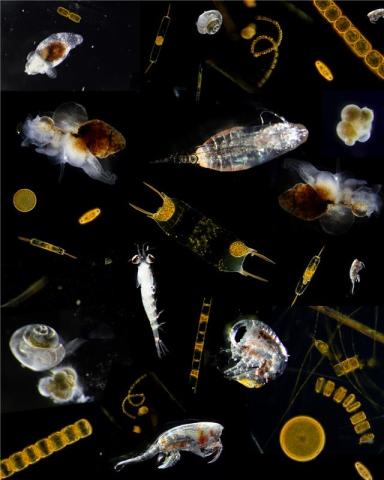
Plankton powerhouses are under the spotlight in a newly published BioScience article authored by an international group of scientists including Prof Alex Poulton of Heriot-Watt University and BIO-Carbon.
Plankton, derived from the ancient Greek word meaning ‘drifter’, are a diverse group of aquatic organisms found worldwide in marine and freshwater environments.
Plankton support virtually all life in the ocean, from the great whales to fish populations that global food supply relies on. Their impacts reach up to the atmosphere too, significantly regulating the climate by helping to sequester (lock away) carbon in the deep sea.
Beyond life in the ocean, their intricate structures have inspired topics as varied as engineering, architecture, forensics and medical research. Fossilised forms help us reconstruct climate deep into Earth’s history and studying them has also affected how we look for life on other planets. The impact of plankton is ‘stratospheric’…in fact, microscopic plankton blooms can be so abundant, they’re visible from space.
This new article highlights the incredibly diverse breadth of behaviour and adaptations of plankton, and how they provide a vast value to humanity. Despite immense importance to ecosystems and human well-being, the paper argues that plankton remain underappreciated.
The authors of this article hope to bring plankton to the forefront of science, policy, and public awareness. Co-author Poulton stated that: “Plankton are at the heart of BIO-Carbon, given the key role they play in helping the ocean store carbon. This new paper explains why their influence is much greater still, helping and influencing humanity in so many ways.”
Read the full article on the Immeasurable Value of Plankton here.
- Log in to post comments